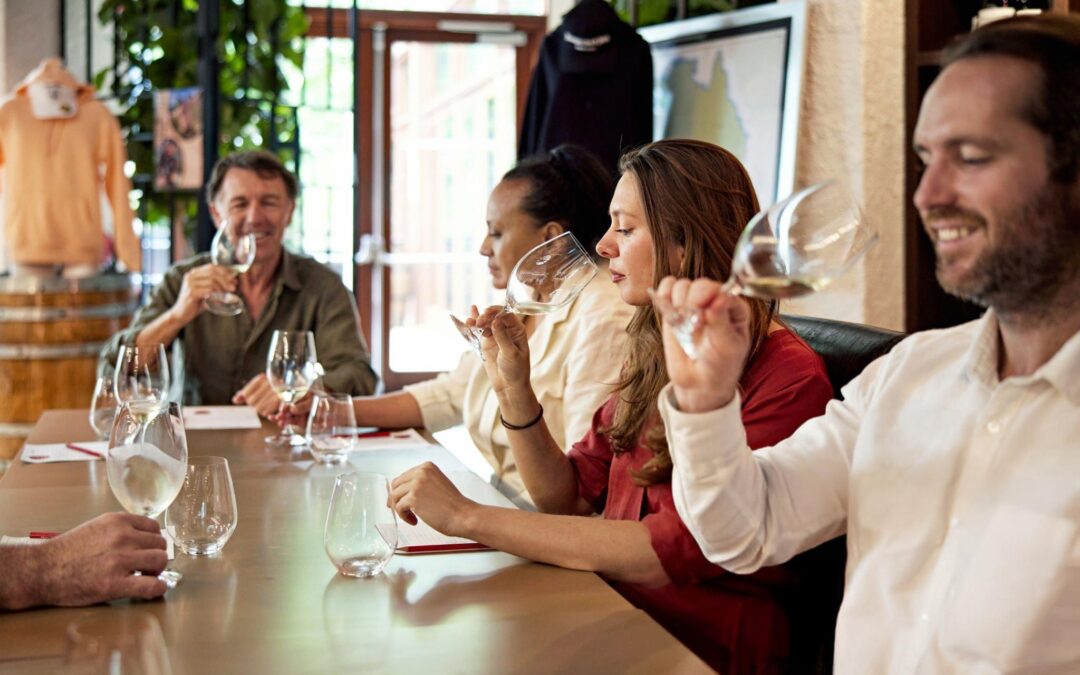There comes a point in every wine lover’s journey when the basics just aren’t enough. You’ve swirled, sniffed, and sipped your way through tastings, and the differences between blends and varietals don’t feel like riddles anymore. If you’ve found yourself craving more insight into what’s in your glass, chances are you’re ready to take a step beyond beginner-level tastings.
Newcastle offers a relaxed yet engaging wine culture, which makes it an easy place to move from casual sipper to curious explorer. Summer’s warm evenings are perfect for enjoying fuller pours and deeper conversations about aroma, structure, and vineyard techniques. So if you’re wondering when it’s time to level up, let’s look at what makes someone ready to go beyond the basics.
Understanding Advanced Wine Tasting
Advanced wine tasting goes beyond just enjoying the flavors. At this stage, you’re starting to think more like a winemaker or sommelier. You might be less focused on whether the wine is good or bad and more interested in why it tastes the way it does. This kind of tasting encourages you to analyze and explore the wine’s background, structure, and balance.
Here are a few things that make advanced wine tasting stand out:
– Greater attention to the wine’s visual cues like color intensity or clarity, which can hint at age and variety
– Identifying specific aromas and flavor notes instead of general categories like fruity or dry
– Understanding how vineyard conditions and winemaking choices impact the overall character
– Using spit buckets to avoid palate fatigue during extended tastings
– Taking more time with each pour and asking purposeful questions
You’ll often hear tasters at this level discussing mouthfeel, tannin quality, acidity levels, and how these elements are working together. There’s also usually a growing comfort with asking technical questions, like how fermentation methods or barrel aging affected the results. While that might sound intense, it’s all about strengthening awareness during the tasting experience. It becomes something you shape as much as enjoy.
Identifying Your Readiness
Not everyone wakes up one day deciding they’re ready for advanced wine tasting. Usually, it’s a gradual shift in how you experience wine. Maybe you’ve stopped picking wines solely for the label or price. Maybe you find yourself wondering how a Chardonnay from California compares to one grown in a cooler region. That curiosity is a strong signal that you’re ready to dig deeper.
Ask yourself a few of the following questions to get a better feel for where you’re headed:
– Do you pay attention to how long the wine lingers after a sip?
– Have you started comparing wines from different regions?
– Are you more reflective about food and wine pairings?
– Do you remember tasting notes from previous wines?
– Are you drawn to conversations about how wine is made?
For example, someone who once reached for the same Cabernet every dinner might now seek out limited releases or ask about vineyard sourcing. It’s less about looking for showy wines and more about gaining a deeper view of all the effort that happens behind the scenes. If any of this sounds familiar, you might already be halfway into advanced tasting and not even know it.
Preparing For Your Experience
Once you’ve decided to step into more advanced wine tasting, a little prep work can really go a long way. You don’t need a sommelier diploma or a binder full of tasting notes to get started. What helps is giving your senses more time with each glass and learning how to describe what you’re picking up.
Here are a few easy ways to get ready:
– Slow down your sips. Give each glass your full attention. Note how it looks, how it smells, and how the flavors shift after a few seconds.
– Start learning wine vocabulary. Knowing the words for what you’re tasting helps you focus your thoughts. Learn terms like tannic, acidic, oaky, or herbal.
– Pair with food intentionally. See how wine affects the taste of food and how food changes the wine. A local charcuterie board with various flavors offers useful feedback.
– Visit Newcastle wineries with a clear purpose. Ask the winemakers direct questions. Listen closely when they talk about what gives their wines character.
Getting ready isn’t about studying textbooks. It’s about staying curious and using real experiences to explore wine on another level. Every visit to a Newcastle tasting room becomes a chance to grow your understanding and maybe find a few surprises.
Enhancing Your Wine Tasting Skills
Once you’re comfortable with the basics, it’s time to sharpen your approach. Advanced tasting isn’t about complicated rules. It’s about fine-tuning your senses and making sure what you notice sticks with you.
Try these ideas to continue building your skills:
– Take notes at every tasting. Jot down color, aroma, mouthfeel, and finish. It only takes a minute per wine and helps keep track of what you liked and why.
– Compare wines side by side. This can highlight contrasts in acidity, body, and texture that are harder to spot when tasting wines separately.
– Talk to others at the tasting. You don’t need expert language. Just hearing how someone else describes a wine can give you new ways to think about what’s in your glass.
– Ask more about the process. Knowing how things like barrel aging or skin contact impact the wine makes it easier to connect technique to taste.
– Join a wine club or tasting group. Having regular sessions adds depth to your experience and makes those new flavors stick in your memory.
At this stage, you’re not just tasting—you’re listening to the wine and building confidence in your own analysis. On a quiet afternoon in Newcastle, you might find yourself more focused, more curious, and more aware of what’s in your glass—and why it matters.
Let Your Curiosity Lead the Way
When you’re ready for advanced tastings, something changes. It’s not only about popping a cork and pouring a good glass. It’s about tuning into the details—where that wine came from, what story it’s telling, and what it says about the people who made it.
Newcastle makes this kind of growth feel easy and enjoyable. The area offers welcoming tasting rooms, talented winemakers, and just enough variety to keep every visit interesting. Whether you’re adding to your tasting notes or trying a style you’ve never had before, each session can bring something new.
So trust your curiosity. The more questions you ask and the more attention you give each glass, the more you’ll get back from the tasting experience. Turns out, wine gets a lot more exciting once you slow down and listen.
Exploring wine tasting in Newcastle is a rewarding experience that opens the door to deeper knowledge and greater enjoyment of every pour. At Lecavalier Cellars, our tasting room offers a welcoming space where you can refine your skills and connect with the stories behind each bottle.


